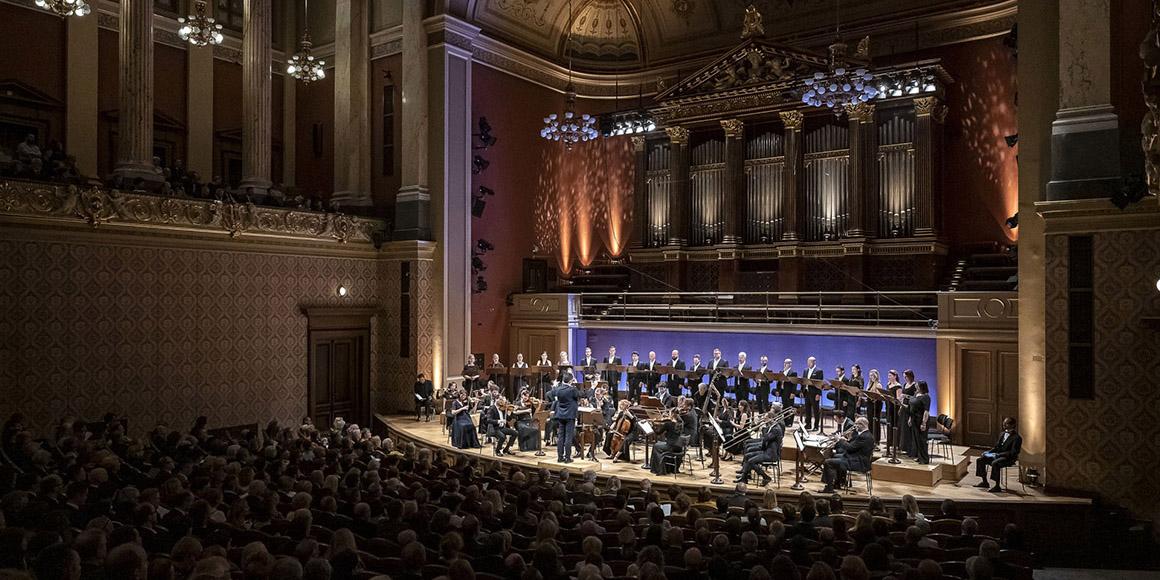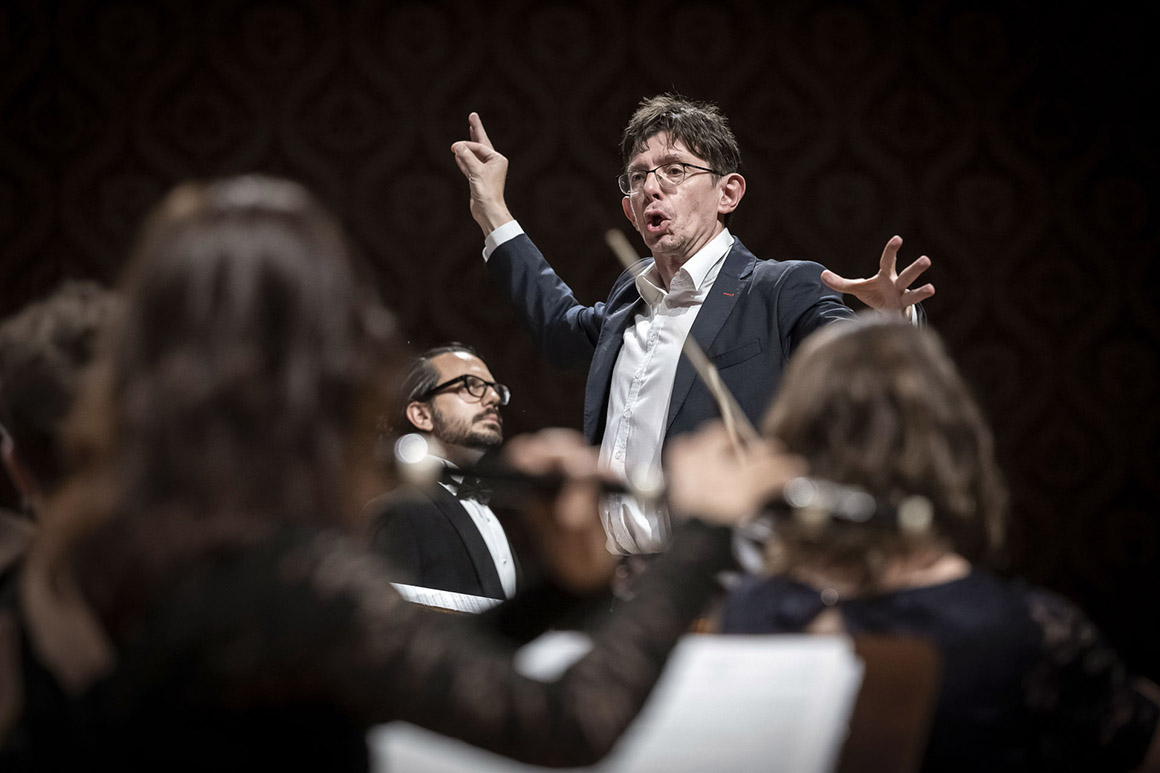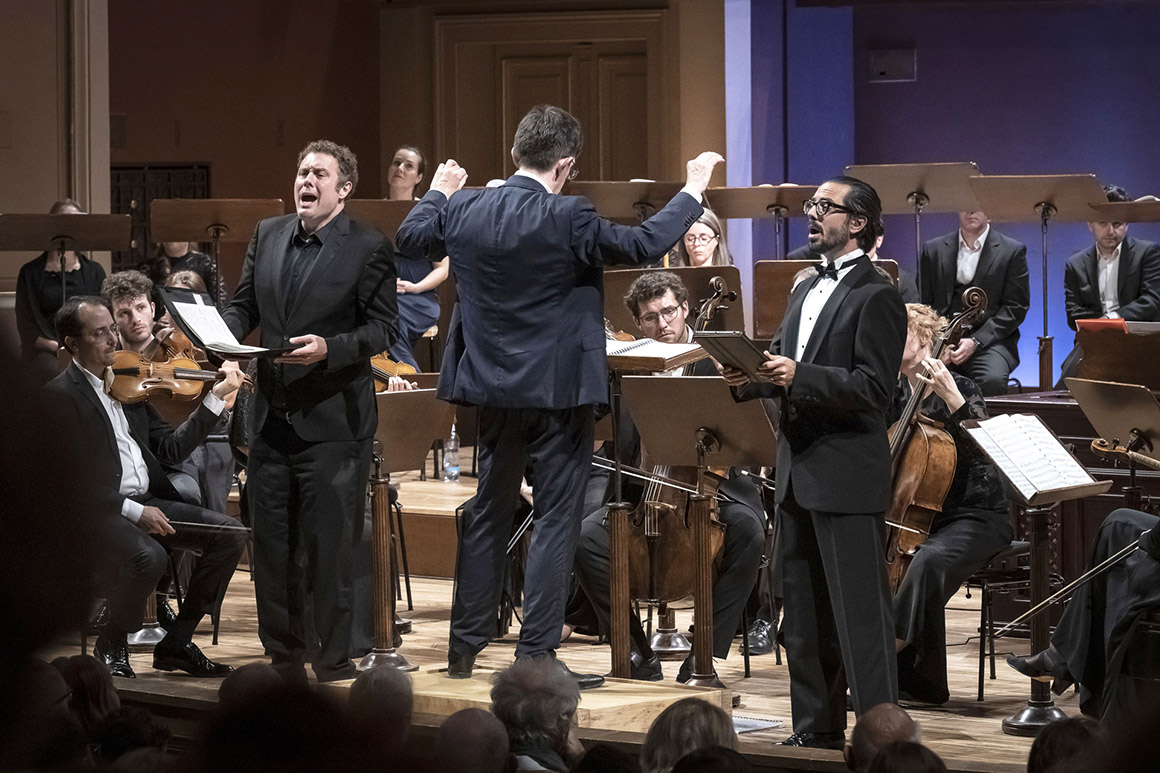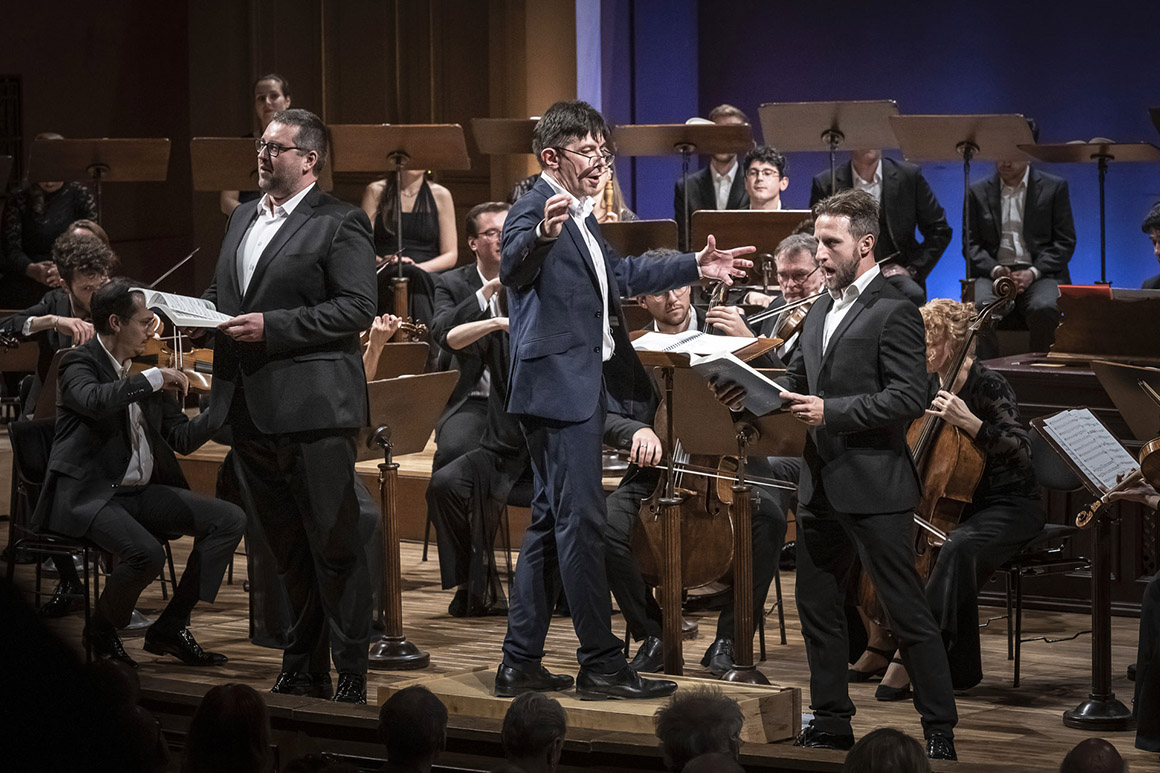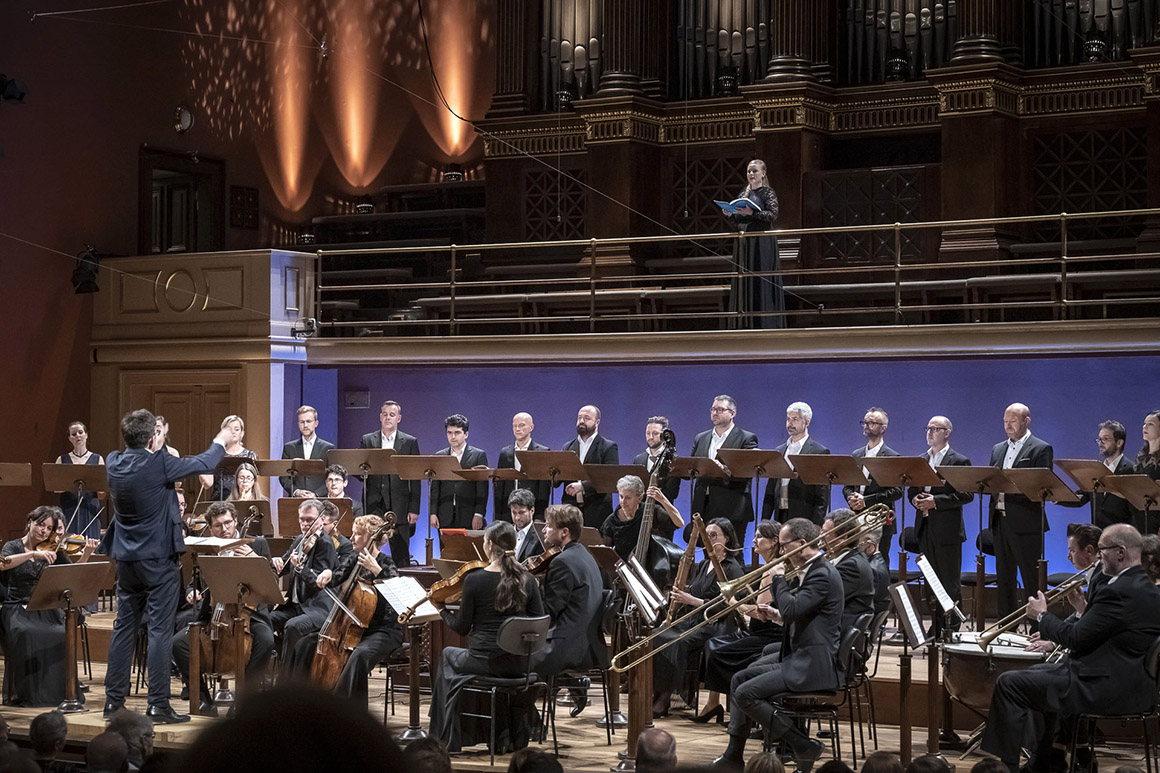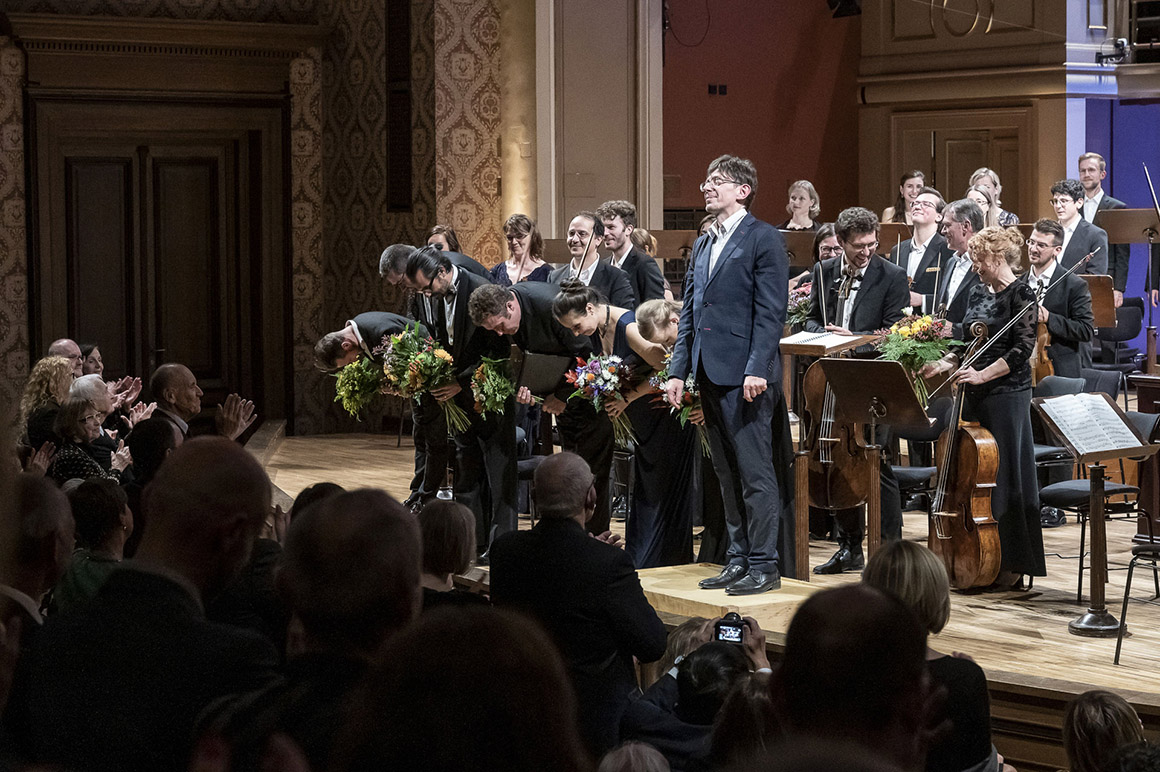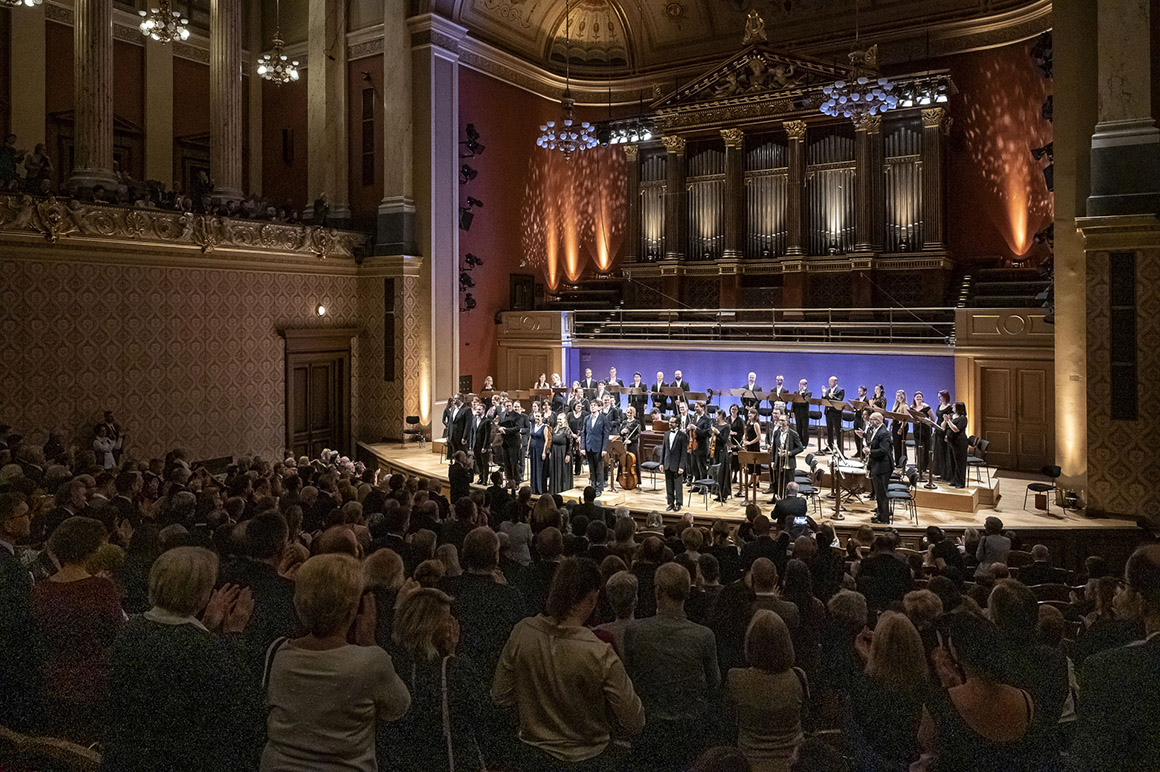Collegium 1704 opened the new concert season with the thrilling Handel oratorio Israel in Egypt
After successful summer tours around Europe, the baroque orchestra Collegium 1704 returned to its Prague audience. After this year’s exceptionally warm receptions at the prestigious international festival in Besançon, France, and at the domestic St. Wenceslas Music Festival in Ostrava, Handel’s Israel in Egypt made the Prague audience give a thunderous standing ovation.
Israel in Egypt occupies a special place among Handel’s oratorios. Named characters are absent and, unlike the more famous Messiah, it is epic and choral sections predominate.
“The chorus has the main role in this work, the solo parts are few. The choral parts are extremely dramatic, large, and demanding, not only in terms of coloratura but also when it comes to sustaining phrases. It’s a big challenge, but I believe we will meet it well,” said soprano Helena Hozová, one of the soloists and a member of the ensemble Collegium Vocale 1704, after the rehearsal before the concerts in Besançon and Ostrava. At the Rudolfinum, she was be joined by other soloists, including soprano Tereza Zimková, British countertenor Alex Potter, Spanish tenor Juan Sancho, and basses Tomáš Šelc and Tadeáš Hoza.
In his rendition of the Old Testament exodus of the Israelites from Egypt, which premiered in April 1739, Handel managed to recount the plot through musical means with such intensity, inventiveness, and conviction that the audience was literally breathless. The double-choir concept, the use of trombones, and the choir’s absolutely unheard-of recitative on the words ‘He sent a thick darkness’ contributed to this effect. Another largely experimental field for Handel were the arias, composed not to verse but to a biblical narrative in English. Later he produced only one oratorio set entirely to biblical prose – his Messiah, with a libretto by Charles Jennens based on New Testament texts, was premiered during the composer’s stay in Dublin in April 1742.
The oratorio Israel in Egypt deals exclusively with Old Testament texts. In the first part, a choral epic containing drastic descriptions of the plagues brought upon Egypt, Handel set mostly verses from Old Testament psalms. The second part, in which the Israelites praise the mighty acts of the Lord, is based on the almost complete 15th chapter of Exodus. While composing, Handel made extensive use of whole musical movements or sections from works by earlier composers, Alessandro Stradella, Dionigi Erba, Francesco Uriano, and Johann Kaspar Kerll. From his own works, he reused two keyboard fugues or single movements from Dixit Dominus and from the cantata Armida abbandonata.

